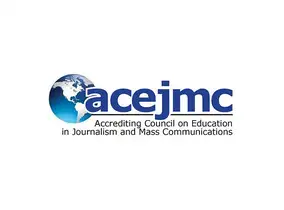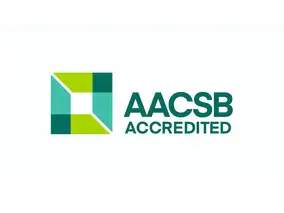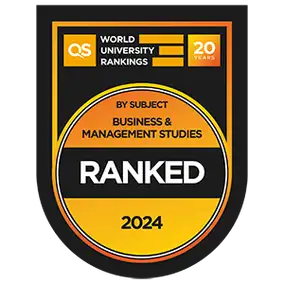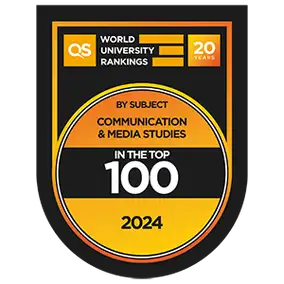Type of qualification
Level of study
Once you’ve graduated with a bachelor’s degree – or have equal experience – you can study at the postgraduate level. Doctoral qualifications require additional entry requirements.
Our courses follow the New Zealand Qualification Framework (NZQF) levels.
Time to complete
Where you can study
International students
International students are not New Zealand citizens or residents.
Study a Postgraduate Diploma in Journalism – PGDipJ
The Postgraduate Diploma in Journalism is based on leading overseas journalism qualifications. It is for those with no journalism experience who wish to enter the industry, or those with some experience who wish to develop specialist knowledge. Either way, you will learn the skills needed to be a successful journalist.
The qualification enjoys a close relationship with leading news organisations. This is reflected in our strong internship programme. Our students are regular winners of national journalism prizes.
Stepping stone to a master’s
The PGDip Journalism is a stepping stone to a Master of Management (Journalism).
What will I learn?
For those wishing to enter the industry, you will learn news writing, feature writing, interviewing, photojournalism, specialist reporting such as police, court, politics and sports advanced audio-visual journalism including TV, radio and podcasting, media ethics, law and. For those wishing to develop a specialist interest, you will have the opportunity to specialise in advanced audio-visual storytelling, sport, arts, investigative/data journalism or even journalism management.
Is it suitable for me?
For those new to the industry, the qualification will build a foundation for an exciting career in journalism. If you wish to develop specialist skills, you can choose from courses that build advanced capability.
Practical, relevant experience, while you study
You'll have the opportunity to spend time working at media organisations and do a full-time work placement. This gives you relevant experience sought after by employers.
A PGDipJ is a good fit if you:
- have excellent written and oral communication skills
- are dedicated to accuracy
- have a good knowledge and interest in current affairs.
Entry requirements
Admission to Massey
All students must meet university entrance requirements to be admitted to the University.
Specific requirements
To enter the Postgraduate Diploma in Journalism you will:
- have been awarded or qualified for a bachelor’s degree or equivalent, with at least a B- grade average in the 300-level majoring courses or equivalent
You will need to provide copies of all official academic transcripts for studies taken at all universities other than Massey University.
English language requirements
If your first language is not English and you have not gained a New Zealand university entrance qualification, or an overseas entrance qualification in a country where the main language is English, you will be required to provide the below as evidence of your proficiency in English:
- an academic IELTS with a minimum score of 7.0 in all bands, or
- an equivalent TOEFL score, or
- other such evidence that is acceptable to Massey University.
Time limits for Honours, Distinction and Merit
Where your qualification is completed within the stated time limit and to a high standard, you may be able to graduate with Distinction or Merit.
- Look for information under ‘Student Progression’ in the General Regulations for Postgraduate Degrees, Postgraduate Diplomas and Postgraduate Certificates.
- Contact us through the Get advice button on this page if you have any questions.
Prior learning, credit and exemptions
For information on prior learning, exemptions and transfer of credit or other questions:
- review the Recognition of Prior Learning regulations
- contact us through the Get advice button on this page.
English language skills
If you need help with your English language skills before you start university, see our English for Academic Purposes (EAP) courses.
Maximum time limits for completion
There are maximum time limits to complete postgraduate qualifications. If you do not complete within the maximum time, you may be required to re-apply for the qualification if you wish to continue your studies.
Official regulations
To understand what you need to study and must complete to graduate read the official rules and regulations for this qualification.
You should read these together with all other relevant Statutes and Regulations of the University including the General Regulations for Postgraduate Degrees, Postgraduate Diplomas, and Postgraduate Certificates.
Returning students
For returning students, there may be changes to the majors and minors available and the courses you need to take. Go to the section called ‘Transitional Provisions’ in the Regulations to find out more.
In some cases the qualification or specialisation you enrolled in may be no longer be taking new enrolments, so may not appear on these web pages. To find information on the regulations for these qualifications go to the Massey University Calendar.
Please contact us through the Get advice button on this page if you have any questions.
Structure of the Postgraduate Diploma in Journalism
If you study full-time, you’ll take 120 credits per year or 60 credits per semester.
Courses and specialisations
Key terms
- Courses
- Each qualification has its own specific set of courses. Some universities call these papers. You enrol in courses after you get accepted into Massey.
- Course code
- Each course is numbered using 6 digits. The fourth number shows the level of the course. For example, in course 219206, the fourth number is a 2, so it is a 200-level course (usually studied in the second year of full-time study).
- Credits
- Each course is worth a number of credits. You combine courses (credits) to meet the total number of credits needed for your qualification.
- Specialisations
- Some qualifications let you choose what subject you'd like to specialise in. Your major or endorsement is what you will take the majority of your courses in.
Credit summary
120 credits
- Courses from the Schedule – 120 credits
Course planning key
- Prerequisites
- Courses that need to be completed before moving onto a course at the next level. For example, a lot of 200-level courses have 100-level prerequisite courses.
- Corequisites
- Courses that must be completed at the same time as another course are known as corequisite courses.
- Restrictions
- Some courses are restricted against each other because their content is similar. This means you can only choose one of the offered courses to study and credit to your qualification.
Compulsory course selections
Course code: 115758 Interpersonal Communication at Work 15 credits
An introduction to the theory and practice of interpersonal communication.
View full course detailsCourse code: 115759 Current Issues in Business 15 credits
Comprehensive examination of contemporary business issues providing a contextual platform for further study of business specialisations.
View full course detailsCourse code: 295700 Examining Business Dilemmas 30 credits
This course delivers a comprehensive examination of business dilemmas. It connects theory around globalisation, governance, strategy, and performance to practice, in order to conduct rigorous applied investigations and solve problems.
View full course detailsCourse code: 219712 Advanced News Journalism 30 credits
Students study the theory and practice of gathering and writing news journalism for publication, including generating news-story ideas, gathering the relevant information, writing these news stories, and publishing them in mainstream media outlets. Students critically reflect on their experience, making links to the relevant scholarly literature.
View full course detailsCourse code: 219714 Journalism and Society 30 credits
Students study and critically reflect on the role and function of journalism in society. This includes the principles of media law and ethics.
View full course detailsSubject courses (Choose 60 credits from)
Course code: 115790 Special Topic 30 credits
Course code: 219713 Advanced Audio-Visual Journalism 30 credits
Students study the theory and practice of journalism in various non-print media platforms, including radio, television and multi-media platforms.
View full course detailsCourse code: 219714 Journalism and Society 30 credits
Students study and critically reflect on the role and function of journalism in society. This includes the principles of media law and ethics.
View full course detailsCourse code: 219715 Advanced Data and Investigative Journalism 30 credits
In the era of big data, journalists need the tools of data and investigative journalism to mine, refine and present stories that matter to their audiences. Students in this course will learn the principles and methods of advanced data and investigative journalism and apply them in a data-investigative journalism project.
View full course detailsAny approved 15 or 30 credit course from the Master of Business Studies or Master of Analytics schedules.
Fees and scholarships
Fees, student loans and free fees scheme
Your tuition fees may be different depending on the courses you choose. Your exact fees will show once you have chosen your courses.
There will also be some compulsory non-tuition fees and for some courses, there may also be charges for things such as study resources, software, trips and contact workshops.
- Get an estimate of the tuition fees for your qualification
- View a list of non-tuition fees that may be payable
Already know which courses you're going to choose?
You can view fees for the courses that make up your qualification on the course details pages.
Student loans (StudyLink) and Fees Free scheme
You may be eligible for a student loan to help towards paying your fees.
The New Zealand Government offers fees-free tertiary study for eligible domestic students. Find out more about the scheme and your eligibility on the Fees Free website. To use the site's eligibility checking tool, you will need your National Student Number.
Current and returning Massey students can find their National Student Number in the student portal.
- Student loans (StudyLink)
- Fees Free
- Student portal
Scholarship and award opportunities
Search our scholarships and awardsFees disclaimer
This information is for estimation purposes only. Actual fees payable will be finalised on confirmation of enrolment. Unless otherwise stated, all fees shown are quoted in New Zealand dollars and include Goods and Services Tax, if any. Before relying on any information on these pages you should also read the University's Disclaimer Notice.
Careers and job opportunities
Many of our graduates are now top journalists at Stuff, TVNZ, NZ Herald, Newshub, Radio NZ or Newsroom or overseas news organisations such as the BBC, CNN, Reuters and ABC. One of our graduates, Alison McCulloch, was part of the team that won a Pulitzer Prize in journalism for its coverage of the Columbine killings.
Earn more
A 2017 Ministry of Education publication The post-study earnings and destinations of young domestic graduates, found that in New Zealand:
- young master’s graduates earn more than one and a half times more than the national median (five years after study)
- earnings and employment rates increase with the level of qualification completed
- five years after completion, the median earnings of young master’s graduates are 15% higher than for those with a bachelor’s degree.
What our students say
“Our media ethics and law classes were invaluable in preparing for what can be an extremely challenging job that constantly presents tricky situations. I also made lifelong friends among my class and in our lecturers.”

“The tuition I received from Bernie Whelan, James Hollings and Kelly Dennett was easily a highlight of my time with Massey. They pushed me further than I thought I could go and I’ll always be grateful to them for that. Everything I do from now on will be a testament to the teaching I got at Massey”

“Massey’s postgraduate diploma takes a ‘bootcamp’ approach and gets you learning journalism by actually being a kind of cadet journalist with the tutors acting as the chief reporters. This helps to build the needed confidence.”

Accreditations and rankings

Accrediting Council on Education in Journalism and Mass Communication (ACEJMC)
Massey’s Bachelor of Communication is the only degree outside the Americas and the Middle East to be recognised by the Accrediting Council on Education in Journalism and Mass Communication (ACEJMC).

Association to Advance Collegiate Schools of Business (AACSB)
Massey Business School is rated in the top 5% of global business colleges by AACSB International.

QS Ranking - Business Management Studies
Massey University is ranked by QS (Quacquarelli Symonds) as one of the top 400 universities for business and management.

QS Ranking - Communication and Media
Massey is ranked by QS (Quacquarelli Symonds) as one of the top 100 universities for communication and media studies. QS is an organisation that ranks universities worldwide in various topics.

ShanghaiRanking - Communication
Communication at Massey is ranked #1 in New Zealand, and among the top 100 in the world, by ShanghaiRanking.
Related study options
Global Communication – Bachelor of Business
Develop skills critical to effective communication in a rapidly changing global environment.
Journalism – Bachelor of Communication
Join a prestigious group of leading journalists that have studied at Massey University – New Zealand’s longest-running, internationally accredited journalism qualification.
Journalism – Master of Management
With Massey’s Master of Management in Journalism, you can take your journalism career to the next level.
Media Studies – Graduate Certificate in Arts
Interested in television and popular culture? Social media and the blogosphere? Film and cultural theory? Media studies can help you unlock your creative potential and develop practical skills to excel in your career.
Media Studies – Bachelor of Arts (Honours)
With Massey’s Bachelor of Arts (Honours) (Media Studies), you’ll develop versatile skills that will make you highly sought-after in many careers.
Media Studies – Bachelor of Arts
Interested in television and popular culture? Social media and fake news? Filmmaking and cultural theory? Media studies can help you unlock your creative potential and develop practical skills to excel in your career.
Media Studies – Diploma in Arts
With Massey’s Diploma in Arts (Media Studies) you’ll gain an understanding of the production, consumption, and content in the media industry.
Media Studies – Bachelor of Communication
Discover how the media shape our identities and our world. Massey will help you create, critique, and connect with the media world, building skills to understand and make media for a wide range of professional communication roles.
Media Studies – Postgraduate Diploma in Arts
Build on your undergraduate interests in media studies with Massey’s Postgraduate Diploma in Arts (Media Studies). Develop your research and analysis skills by exploring an area that interests you.
Media Studies – Master of Arts
With Massey’s Master of Arts (Media Studies), develop critical research skills exploring an aspect of media that interests you. Gain advanced insights into media studies that will build on your undergraduate knowledge.
Media Studies – Graduate Diploma in Arts
Create, critique, and connect with your media world with the Graduate Diploma in Arts (Media Studies). You will gain the equivalent of an undergraduate major in media studies without completing a second bachelor’s degree.
Useful planning information

Key information for students
Compare qualifications and academic information across different New Zealand institutions. Learn more on careers.govt.nz